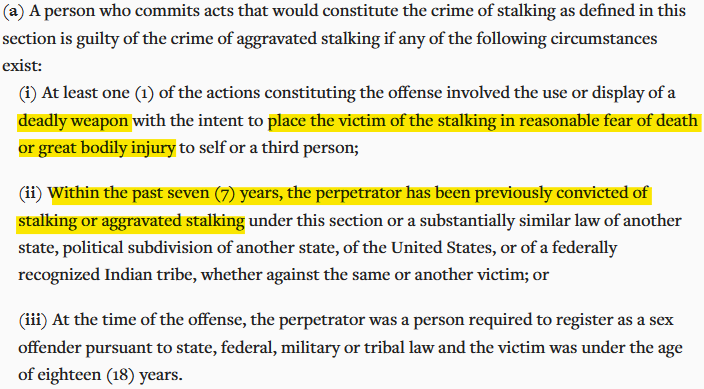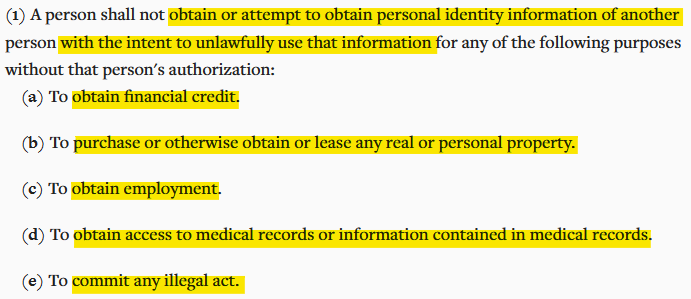Is Doxxing Illegal In Mississippi?
Laura Martisiute
Reading time: 5 minutes

Table of Contents
If you’re a Mississippi resident with concerns about your online privacy, you may wonder: Is doxxing illegal in Mississippi?
In this guide, we’ll examine Mississippi’s legal code to determine whether sharing other people’s information online without permission is illegal. We will also review doxxing-related criminal activities in the state.
Is Doxxing Illegal in Mississippi?
No. The act of doxxing, or publishing someone else’s information online without authorization, is not expressly illegal in Mississippi. However, doxxing can lead to a number of activities that are definitely against the law in the state.
Doxxing Related Activities That Are Illegal in Mississippi
Even though Mississippi doesn’t have an anti-doxxing law, being doxxed can make you vulnerable to other activities that are illegal in the state, including receiving threats, being stalked, or being swatted.
Threats and intimidation by letter or notice
If someone has your address, they can mail you threatening letters (Miss. Code § 97-3-85).

In Mississippi, this is a crime punishable by up to six months in jail and a fine of up to $500.
Stalking
When someone makes you fear for your safety or that of your property through their course of action, it’s considered stalking in Mississippi (Miss. Code § 97-3-107).

The penalty for stalking in the state is up to one year in jail and up to $1,000 in fines.
If the offender uses a deadly weapon while committing stalking or was previously convicted of stalking, they can be charged with aggravated stalking, which comes with up to five years imprisonment and a fine of up to $3,000.

False reporting of a crime
Swatting is one of the more closely associated crimes with doxxing.
In Mississippi, swatting falls under the charge of false reporting of a crime (Miss. Code § 97-35-47), which is defined as someone calling a law enforcement agency and knowingly reporting that a crime has happened when it hasn’t.

False reporting in Mississippi comes with up to one year in jail and a fine of up to $5,000.
Identity theft
If someone uses your personally identifying information to acquire financial credit, property, employment, or medical records, they’re committing identity theft (Miss. Code § 97-45-19).

In Mississippi, if the amount stolen is more than $250, it’s punishable by between 2-15 years’ imprisonment and up to $10,000 in fines.
If the amount stolen is less than $250, the charge is lessened to up to six months’ imprisonment and a fine of up to $1,000.
Online impersonation
If someone claims to be you online without your permission to harm, intimidate, threaten, or defraud you or someone else, they’re committing online impersonation (Miss. Code § 97-45-33).

In Mississippi, anyone who commits online impersonation can be punished with between 10 days and one year in jail and up to a $1,000 fine.
Is Doxxing Illegal at the Federal Level?
There is no law against doxxing at the federal level, in part because doxxing generally relies on publicly available information.
Despite this, several states—including Arizona, California, and Illinois—have passed their own anti-doxxing laws to protect their residents in recognition of the harm that can come from doxxing.
Whether you live in a state where doxxing is against the law or not, you should take precautions to protect yourself against being doxxed.
How to Protect Yourself Against Doxxing In Mississippi (And Elsewhere)
To protect yourself from being doxxed, your first step should be to dox yourself.
It may sound strange, but doxxing yourself will give you the best idea of where your information is showing up on the internet and what you should do to remove it.
Find out how to dox yourself in our step-by-step self-doxxing guide using these doxxing tools.
Once you’ve doxxed yourself, you’ll most likely need to take steps to reduce your online footprint.
For most people, this involves a combination of the following steps:
- Changing your social media privacy settings from public to private so your posts have a limited, controlled audience.
- Changing your usernames on different accounts to make it harder for bad actors to follow you between platforms.
- Opting out of data brokers, which are companies that collect and sell your information to anyone willing to pay a minimal fee. You will need to opt out of every major data broker that maintains a profile on you, and you will likely need to do it more than once, as data brokers routinely reactivate profiles when they find new information about you – even after you opt out. Alternatively, consider subscribing to a data removal service such as DeleteMe. Our privacy experts can handle the opt-out process on your behalf.
- Removing your data from Google services, including Maps, Search, and YouTube.
- Downloading fewer apps and removing old apps that you aren’t using (as they can track your data passively).
- Limiting how much personal information you share online.
If you’d like to find out more, read our guide on how to prevent doxxing.
Our privacy advisors:
- Continuously find and remove your sensitive data online
- Stop companies from selling your data – all year long
- Have removed 35M+ records
of personal data from the web
Save 10% on any individual and
family privacy plan
with code: BLOG10
news?
Don’t have the time?
DeleteMe is our premium privacy service that removes you from more than 750 data brokers like Whitepages, Spokeo, BeenVerified, plus many more.
Save 10% on DeleteMe when you use the code BLOG10.
















